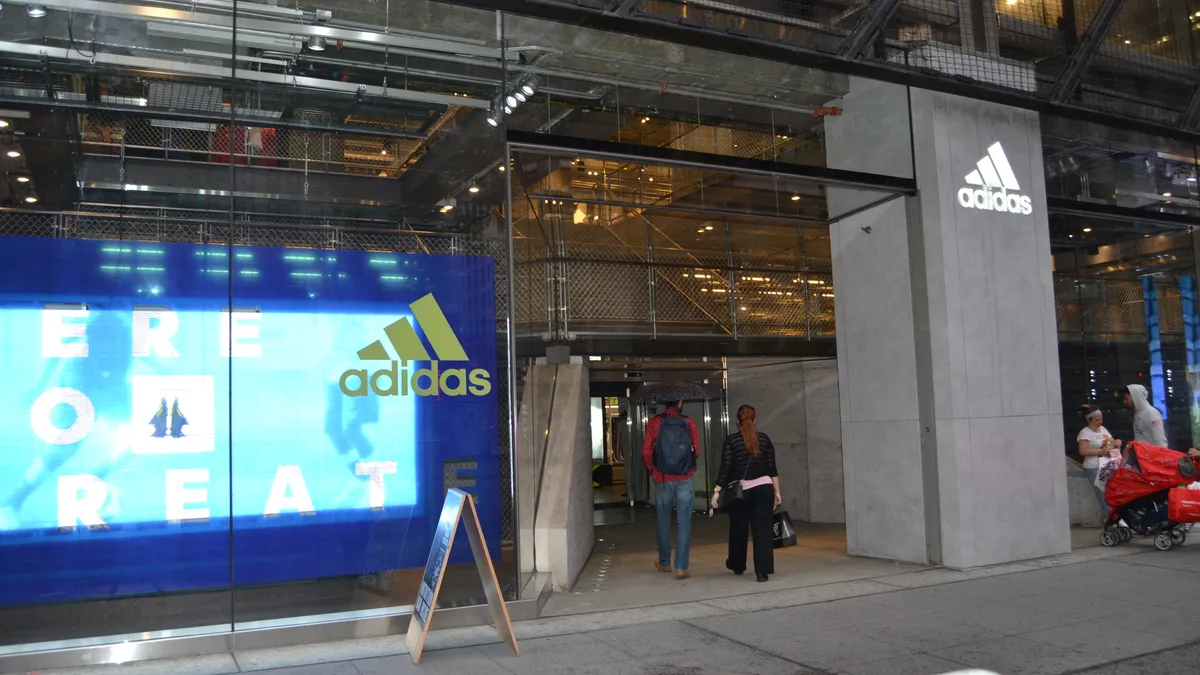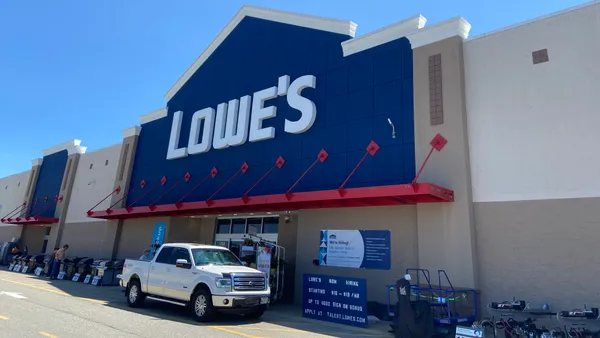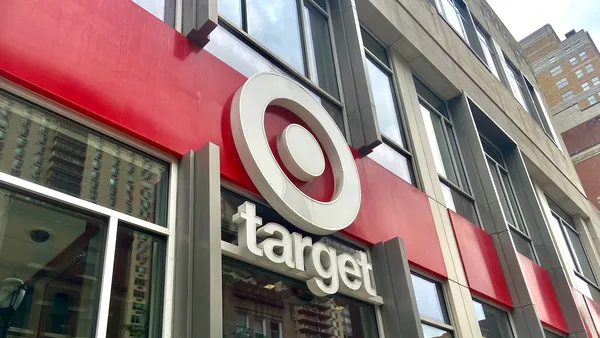Dive Brief:
-
After speculation earlier this year that Reebok could be sold off, Adidas confirmed on Monday that it's considering a sale of the smaller brand, along with other "strategic alternatives," which could include Reebok staying with the company.
-
The potential sale comes as part of the retailer's development of its five-year strategy. Both the strategy and the company's decision on whether or not to sell Reebok will be announced on March 10, according to a company press release.
-
Adidas acquired Reebok in 2006 and has been working on turning it around for years. A 2016 turnaround plan helped to "significantly improve its profitability" and returned Reebok to positive profits in 2018, the retailer said.
Dive Insight:
Reebok returned to profitability two years earlier than planned, but that still might not be enough for Adidas. In 2019, Reebok recorded double-digit growth in North America and saw sales grow by 2% over the prior year, but executives were not thrilled by that level of growth.
"Overall as a company, we are not happy with the 2% growth in 2019," Harm Ohlmeyer, the head of finance for Adidas, said on a conference call at the end of the retailer's fourth quarter that year, according to a Seeking Alpha Transcript. "That is not according to our ambitions. So it's a mixed bag. We're happy with the progress given Muscle Up. We're happy in North America, but overall 2% is not what the industry should expect from Reebok. And that's what we are working on towards 2020."
Like many retailers, Adidas took a blow from the pandemic, which has hit both Adidas and Reebok. In its latest quarter, Adidas sales fell 2%, while Reebok's declined by 7%, but that's massively improved from the second quarter, when those sales fell by 33% and 42% respectively. Executives in Q3 pointed to Reebok's higher exposure in North America, which was not recovering as quickly as Europe from the impacts of the pandemic, as a reason for the steeper decline at that brand.
In recent years, Reebok has worked to improve various aspects of the business, including a revamped digital strategy that included a new website and a more personalized e-commerce experience, as well as efforts to make the site more welcoming to women. In 2019, the retailer also launched a maternity line aimed at new and expecting mothers, and extended sizing to include sizes 1X to 3X.














